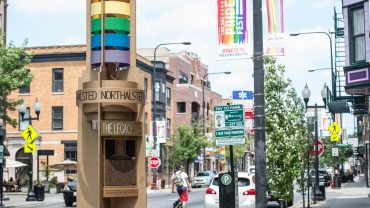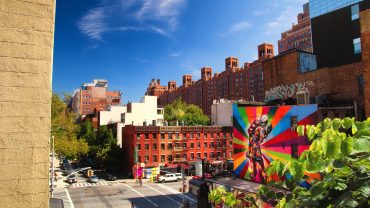People are becoming more aware of the LGBTQ+ community's rich history and lively culture over the past few years. Since people's views have changed, a new type of tourism has grown up around teaching people about LGBTQ+ history and culture. This piece talks about why learning about LGBTQ+ history is important for educational tourism and how it affects people and society as a whole.
How to Prepare for Educational Tourism
To get the most out of the learning chances and cultural immersion, educational tourism needs to be well planned ahead of time. First, learn as much as you can about your destination's history, society, and educational institutions. Make a detailed schedule that includes both academic events and free time to enjoy the atmosphere of the place. Bring the things you need, like comfortable walking shoes, language guides, and any school supplies you might need. Learn about the local norms and manners so that you can interact with the community in a polite way. You should also see if there are any health or safety warnings. Joining educational trips or workshops with a guide could help you learn more about the place you're visiting. Don't forget about the study assignments that you should complete before you go on your trip. But there is often too much to do to get everything done. In such cases, you can always turn to services like PapersOwl for help and just pay for essay or get help for any other assignment. Qualified writers will do everything for you in the best way and in the shortest possible time. Lastly, keep an open mind and a desire to learn. This will help you see things in a new way that goes beyond what you learn in school. This proactive method guarantees an educational tourism trip that is both fulfilling and enriching.

Signs and movements of LGBTQ+ people
The LGBTQ+ group has a long history full of famous people and important movements. From Marsha P. Johnson to Harvey Milk, these people were very important in the fight for LGBTQ+ rights. The fight for equality was sped up by groups like Stonewall and ACT UP. To fully understand the progress made and the problems that still need to be solved, it is important to know what these icons have done.
Places that are welcoming to LGBTQ+ people
Some places have become known for welcoming and celebrating LGBTQ+ people. People know that cities like San Francisco, Berlin, and Amsterdam are welcoming places with strong LGBTQ+ scenes. Not only does visiting these places give you a chance to travel, but it also helps you understand how important it is to accept and value differences.
Literature and art by LGBTQ+ people
The LGBTQ+ group has made important contributions to art and literature. Literary works by James Baldwin and Audre Lorde, as well as art by Keith Haring and Frida Kahlo, have changed the way people think about the world forever. Reading and watching LGBTQ+-themed books and arts can help you understand and value the variety of human experiences.
Problems and Step Forward
Even though there has been progress, it is important to remember the problems the LGBTQ+ group has had in the past. Hate crimes, discrimination, and the HIV/AIDS outbreak have left scars. To build empathy and understanding, it's important to recognize both the problems and successes of the LGBTQ+ community.
Programs to teach LGBTQ+ people
It is very important to include LGBTQ+ events and points of view in school in order to promote acceptance. Programs that teach about the achievements of the LGBTQ+ community help students understand history in a more complete way. By making lessons more open to everyone, society can work to get rid of assumptions and stereotypes.
Being LGBTQ+ at Work
Including LGBTQ+ people in the workplace is another important issue in the fight for acceptance. Diverse workplaces not only gain from having different points of view, but they also make it possible for people to be themselves. Companies with strong LGBTQ+ inclusion programs have had a lot of success, which shows how important it is to promote acceptance at work.

Festivals and events for LGBTQ+ people
The most important thing about celebrating variety is the LGBTQ+ events and festivals, like Pride parades and film festivals. These events give people a chance to speak out, stand together, and get involved. People can make a real difference in the fight for LGBTQ+ rights by going to or supporting these kinds of events.
Social Media and LGBTQ+ People
Social media has become a strong way to shape stories about LGBTQ+ people. Online communities give people support, knowledge, and a feeling that they belong. But the digital world also has problems, like abuse and spreading false information. Responsible online behavior is important for keeping the internet a positive and welcoming place for everyone.
What's Next for LGBTQ+ Education
When we look ahead, the future of LGBTQ+ schooling looks bright. Some trends that are expected are more diversity in the media, more inclusive lessons, and ongoing attempts to break down social barriers. The key is to keep talking about, raising understanding of, and fighting for LGBTQ+ rights.
In educational tourism, learning about LGBTQ+ history and culture is more than just a trip through time. It's a step toward making society more accepting and open. By recognizing the struggles, celebrating the wins, and actively taking part in the ongoing fight for LGBTQ+ rights, everyone can help make the world a better place for everyone.




Comment (0)